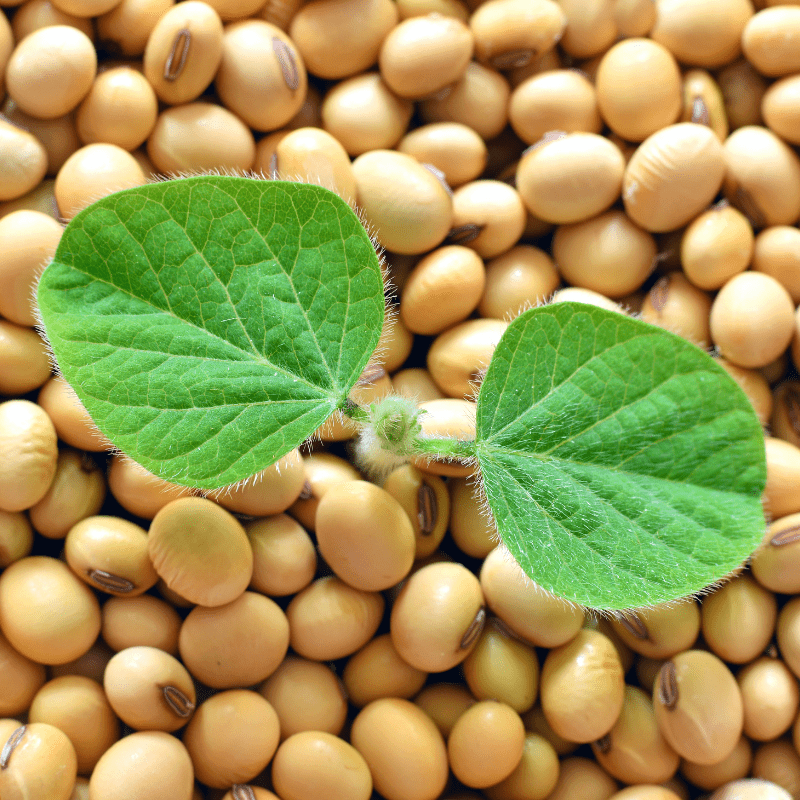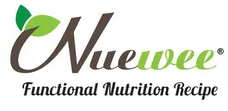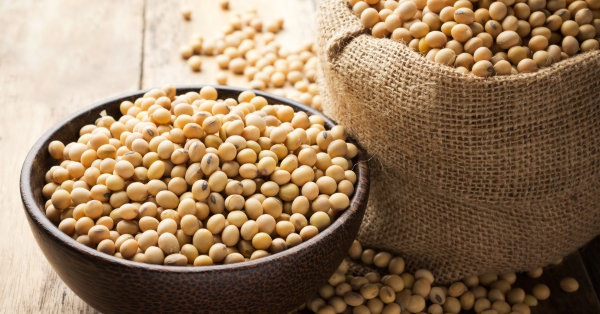Soybeans have been part of the human diet for around 5000 years. Not only is soy cholesterol free, but it also has all the nutrients essential for good health: protein, essential amino acids, carbohydrates, and vitamins. It is high in fiber, low in saturated fat, and rich in minerals like calcium, iron, and phosphorus. It is also packed with disease-fighting nutrients like phytochemicals, antioxidants, and polysaccharides. Soy has been called the “yellow jewel” since ancient times due to its unique characteristics.
One of the Most Abundant Source of Plant Protein
Soy is rich in protein, unlike many foods. Made up of 36%-56% protein, soy is one of the most abundant plant sources of dietary protein. Like animal protein, soy protein is complete in that it provides all the essential amino acids needed for human health.
Studies indicate that excess undigested protein may cause allergies. In addition, diets high in animal protein cause excretion of calcium through urine and heighten the risk of osteoporosis. Therefore, soy protein is an ideal source of protein in one’s daily diet.
Soy protein has a complete range of amino acids, especially lysine, which is lacking in most grains. Hence, soy is an ideal choice of protein for health-conscious people, vegetarians, and those managing their weight with low-calorie diets.


Excellent Source of Phytoestrogens
Soy contains natural phytoestrogens, mainly isoflavones and lignans. Their estrogenic effects are obvious when these natural phytoestrogens are concentrated together. Isoflavones are very important to good health. To date, soy is the most important and best-known source of isoflavones.
Some people believe that the phytoestrogens found in soy may cause hormone-related cancers, such as breast cancer, endometrial cancer, and prostate cancer. In actuality, phytoestrogens help to prevent cancer.
Soy isoflavones exert both estrogenic and anti-estrogenic effects. One theory is that phytoestrogens may act as anti-estrogens in premenopausal women who tend to have higher hormone levels. Phytoestrogens may block some effects of estrogen and this protect against hormone-related cancers.
Phytoestrogens fill estrogen receptor sites on cells, keeping cancer causing estrogen from promoting the growth of malignant cells. Therefore, phytoestrogens from plant foods may lower the risk of estrogen-dependent cancers, such as breast cancer.
According to a study by the National University of Singapore, the University of Southern California, and the University of Minnesota, Singapore Chinese women who regularly consumed soy products such as soy milk had a significant 18% reduction in breast cancer risk. This study tracked about 35,000 Chinese women over 10 years and was published in the British Journal of Cancer in 2008.
In another study, published in the International Journal of Cancer in October 2008, Japanese researchers found that high levels of soy food consumption appeared to specifically reduce the risk of estrogen receptor (ER)-positive tumors and human epidermal growth factor receptor 2 (HER2)-negative tumors.
Easily Absorbed Source of Calcium and Iron
Iron and calcium are minerals the body needs to keep bones healthy and to produce hemoglobin in the blood. Hemoglobin plays a key role in transporting oxygen in the body. Soy, like all legumes, is a good source of calcium and iron. Just 100 g of boiled soybeans contain 145 mg of calcium and 2.5 mg of iron that are easily absorbed by the body. In addition, soy contains ferritin, a protein that stores iron and releases it in a controlled fashion. U.S. researchers studied 18 women, most of whom had marginal iron deficiency. They were given soybean soup and muffins made with soy flour. After 28 days, the researchers found there was a 27% increase of iron absorption in the women’s red blood cells.
Moreover, soy contains fructooligosaccharides (FOS), which can increase the amount of good bacteria in the intestines. Research has also shown that FOS can increase the multiplication of Bifidobacteriuma bifidum (B. bifidum), which helps promote the absorption of calcium and magnesium and further reduces the risk of osteoporosis.
Immunity-enhancing Effects
In a study published in Tumori, rats were given the carcinogens dibutylamine and sodium nitrite, which resulted in depressed cellular and humoral immunity. Soybean was then administered. Results indicated an absence of tumor growth, demonstrating that soybean has the ability to increase immune function by enhancing both cellular and humoral immunity.


Strong Anticancer Effects
Phytates (the salts of phytic acid) in soy have been associated with reduced colon cancer risk. Research shows that soy saponins help to inhibit cancer cell growth. Furthermore, the main isoflavones in soy-genistein, daidzein, and glycitein-have anticancer effects. Isoflavones also work as antioxidants, destroying free radicals before they cause cells to mutate into cancer.
Genistein
Genistein has shown promise in preventing and treating prostate and breast cancers. Research shows that genistein can effectively inhibit the growth and spread of cancer cells. As such, the U.S. National Cancer Institute is studying the possibility of using genistein as an anticancer drug.
A large study spanning 10 years suggests that women with high blood levels of genistein seem to have a lower risk of developing breast cancer. Among more than 24,000 middle-aged and older Japanese women, those with the highest blood levels of genistein were about 65% less likely to develop breast cancer compared to those with the lowest blood levels of genistein. This study is unique because the researchers measured blood levels of genistein instead of asking what the women ate. The researchers theorize that genistein may lower breast cancer risk by sitting in the estrogen receptors on breast cells and blocking the cancer-promoting effects of estrogen made by the body.
Daidzein
Daidzein may prevent hormone-sensitive cancers like breast cancer, endometrial cancer, and prostate cancer. It could be especially useful when used in tandem with other preventives and treatments. For instance, tamoxifen is an effective chemopreventive agent against ER-positive breast cancer. However, long-term use of tamoxifen may significantly increase the risk of endometrial cancer, which begins in the uterus. An experimental model by the University of Cyprus suggests that daidzein may lower the increased risk of endometrial cancer produced by tamoxifen.
Glycitein
Glycitein accounts for 5%-10% of the isoflavones in soy foods. Studies found it to have weak estrogenic activity. It may also have antioxidant activities and help prevent cancer, osteoporosis, and the formation of plaque inside the arteries.

